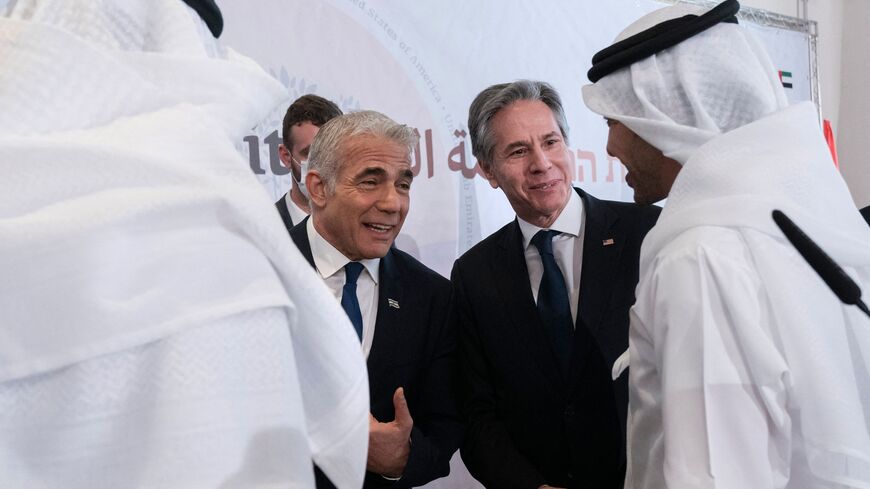As Israel’s offensive in Gaza grinds on, World War III in the Middle East has not yet erupted. Iran’s allies have exercised relative restraint, and nobody has a desire to fully escalate. However, a single misstep could spark a broader conflagration.
Already, the Houthis launched a barrage of ballistic missiles and drones that appear to be targeting Israel. Also, Iran-backed allies in both Syria and Iraq have claimed attacks on US positions there.
However, the current crisis unfolds in a region that has recently elevated diplomacy. In the Abraham Accords, the UAE and Bahrain reached agreements with Israel in 2020. Saudi Arabia was considering normalizing relations with Israel, contingent upon a US defense pact and a civilian nuclear program. This year, long-time adversaries Saudi Arabia and Iran re-established diplomatic ties following a China-brokered agreement. Discussions between Saudi Arabia and the Iran-backed Houthis are under way to resolve an eight-year conflict in Yemen. In 2021, Saudi Arabia, the UAE, Bahrain and Egypt ended the blockade of Qatar, restoring diplomatic relations. Additionally, Saudi Arabia has expressed willingness to mediate ongoing conflicts in Ukraine and Sudan.
Limited influence
The uptick in diplomacy activities raised hopes that the Gulf states could influence Israel’s campaign and avert a wider regional war. After all, they now have official communication channels with both Israel and Iran, which backs Hamas, and other regional resistance groups that Israel views as a threat, including Hezbollah in Lebanon. There was anticipation that Saudi Arabia would push Israel to de-escalate.



